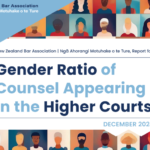10 Things You Should Know Before Filing For Bankruptcy
At its core, bankruptcy is a complex legal process that can assist individuals or businesses who are no longer able to repay their outstanding debts. However, bankruptcy is not to be taken lightly. While it gives a debtor the opportunity to wipe out their debt and have a fresh start, a debtor’s credit rating may suffer ramifications for years after a bankruptcy judgment.
Every bankruptcy is unique, with each case requiring a curated approach and solution. However, by developing a general understanding of different bankruptcy aspects, you will be more prepared to take your next step.
‘Bankruptcy basics’ published by the US Courts provide a detailed outline of the various issues and procedures required in bankruptcy matters. There are other resources also that provide information about bankruptcy matters, such as these. These are 10 things you should know before filing for bankruptcy.
LawFuel has also written about key questions about bankruptcy questions to ask your lawyer. There are some important matters to think about, both in terms of your current situation and the ‘way forward’ as you pass through the bankruptcy process.
1. What Other Options Do You Have?
You may have several options available to you that will help you address your debt. Before diving headfirst into the bankruptcy process, consider exploring other recovery options, such as:
- Develop a budget. Utilize money management techniques from certified financial education standards or another reputable source to budget your basics (e.g. food, housing, insurance, healthcare, education).
- Credit counseling. Receive guidance and support on consumer credit, money, debt management, and budgeting. Even if you would like to proceed with the bankruptcy process after credit counseling, credit counseling is a requirement before you are able to file for bankruptcy.
2. Are You Eligible To File In Las Vegas?
Different types of bankruptcy filings have their eligibility stipulations. For example, when filing with Chapter 7 bankruptcy, a debtor must first pass a “means test.” The means test is essentially an analysis of a debtor’s finances conducted by an independent trustee after a debtor files for bankruptcy. To learn more about whether you are eligible to file, reach out to Crosby & Fox LLC for your free consultation.
3. What Are The Different Types Of Bankruptcy?
While there are six different types of bankruptcy, the most common forms of bankruptcy are Chapter 7 and Chapter 13. Chapter 7 bankruptcy is known as liquidation bankruptcy.
Under Chapter 7, people are generally able to wipe out the majority of their general unsecured debts. Chapter 13 bankruptcy, also known as reorganization bankruptcy, allows individuals to pay their debts through a repayment program while retaining their property.
Chapter 13 “reorganization” is a specific type of debt repayment plan, where a plan is filed showing how to repay the debts over the next three to five years. The major benefit to Chapter 13 is that it prevents your creditors from pursuing you for the debts and permits you to retain your property, subject only to a security interest,as long as you make the payments required under your repayment plan.
4. Bankruptcy Does NOT Eliminate All Of Your Debts
Certain debts cannot be or usually are not discharged in bankruptcy and so it will not remove the problem in respect of every debt. A few examples of these debts include child support, taxes, and student loans. However there are others, such as secured debts, which cannot be removed – such as those creditors holding collateral over a house or vehicle.
It may however permit the debt to be restructured. But it will not discharge some of those debts incurred within 180 days before the bankruptcy filing.
5. Bankruptcy May Stay On Your Credit Report For A Decade
When filing for bankruptcy, the information will stay on your credit report for a certain amount of time, depending on the chapter you file. Generally, for Chapter 7 and 13 bankruptcy, it will stay on your credit report for 10 and 7 years respectively.
Keep in mind however that the credit ranking situation may not affect your credit ranking or status as much as you expect. Indeed it may even improve your ratings if you are already well behind with bills. While the bankruptcy will show on your record for 10 years, bad debts will be there for seven.
But since bankruptcy clears your debts you are going to be better placed to meet your bills and could even establish a better credit after bankruptcy than you had prior to bankruptcy.
6. Filing For Bankruptcy Is Not An Instant Fix
In fact, the bankruptcy process may take anywhere from four months to five years from start to finish, contingent on the chapter bankruptcy you choose to file.
7. Your Bankruptcy Is On Public Record
Your bankruptcy becoming public record, which means your judgment will appear on bankruptcy court databases and on your credit report, which the public has access to.
You need to be aware of this matter if you’re seeking any security clearance or may wish to have one in future. It is a matter that you need to speak to your attorney about as it is not automatic.
8. Your Potential Employer May Access Your Bankruptcy Records
While performing routine background checks, potential employers may have access to (with your permission) information regarding the bankruptcy. This is especially prevalent in those seeking a career in the finance industry.
9. You MUST Be Completely Transparent
Throughout the bankruptcy process, you must be completely transparent regarding your income, assets, and debts. Failure to do so may result in repercussions, such as prosecution.
10. Consider Hiring A Lawyer
Filing for bankruptcy can be daunting and overwhelming. Having an experienced bankruptcy lawyer is a near-essential requirement to navigate the various options and consequences of bankruptcy.
Source:






